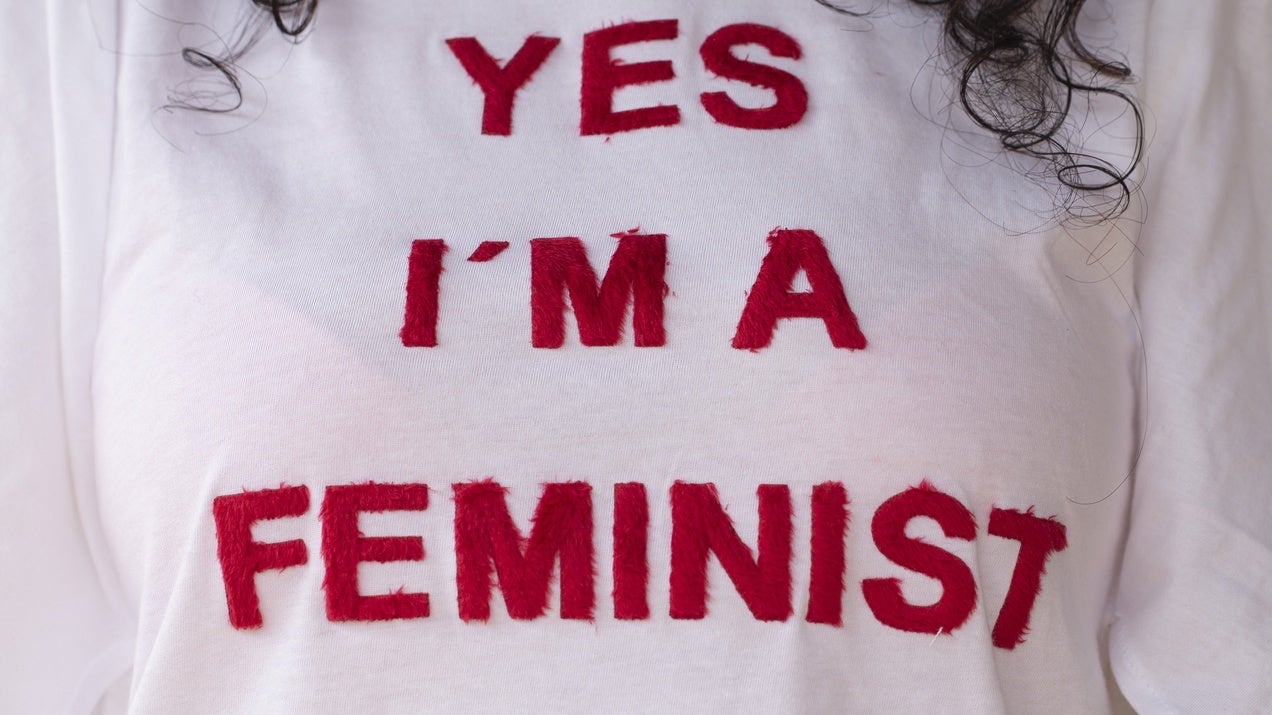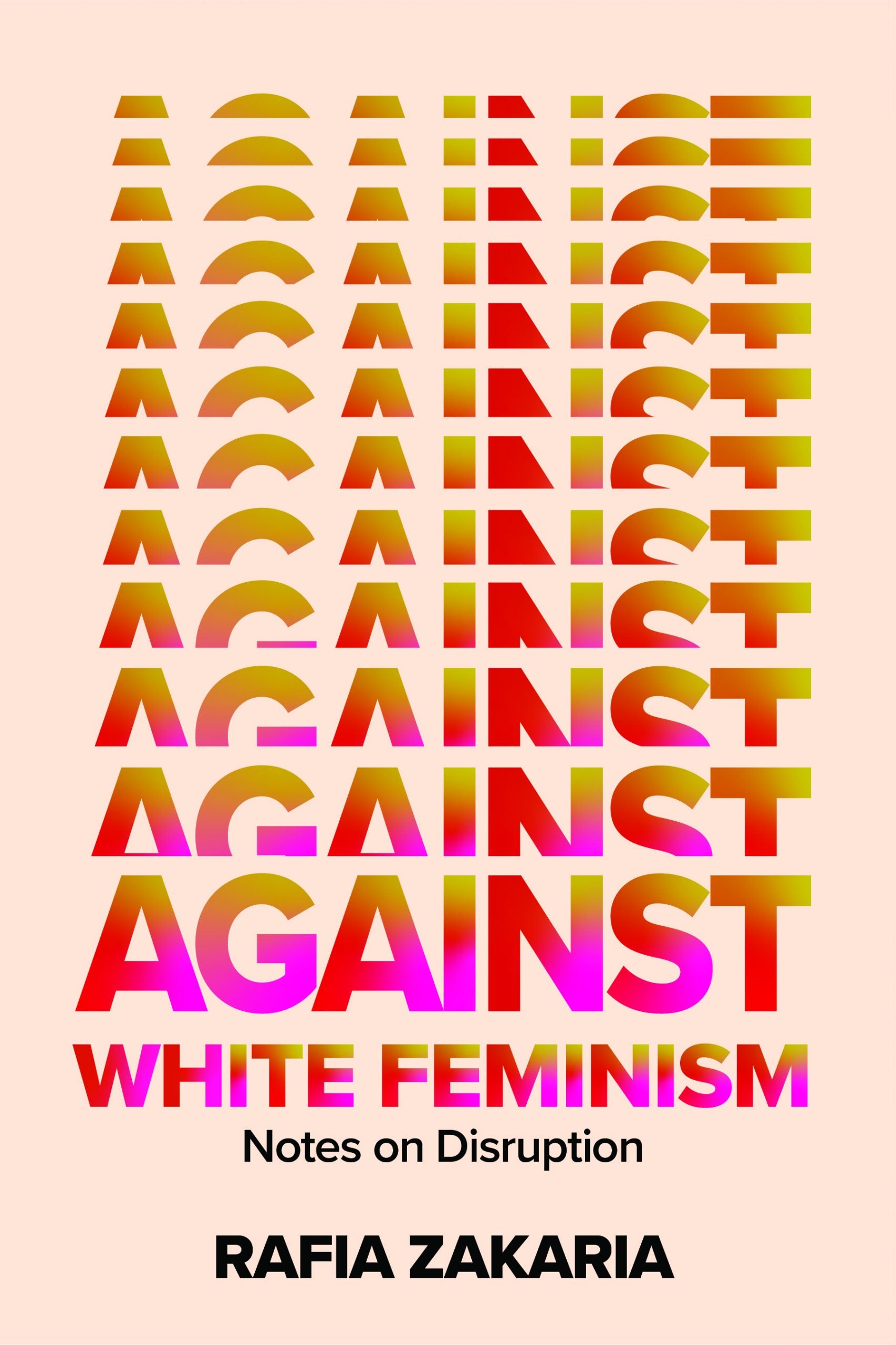
Today author Rafia Zakaria’s third book, Against White Feminism: Notes on Disruption will hit the shelves. As the title suggests, the Pakistani-American author takes a critical approach to a genre of feminism she describes as failing women of color and obstructing the progress of all women with adherents prioritizing alignment with whiteness. Despite its roots in white, Western women’s response to patriarchy, Zakaria contends that white feminism is an ideology that anyone — particularly any woman — can embrace and champion.
“Despite how you visibly appear, for all purposes if you are fulfilling and projecting and doing all the work of white supremacy on other brown and Black women, [you are a white feminist],” she says.

Zakaria explains how these dynamics of performing white feminism — and resisting it — occur in the workplace, especially for women of color. In this context, she says women of color will either adopt a posture dissenting from white feminism or, unthinkingly or by choice, they will uphold it, often erroneously orienting themselves to the notion that the gains for white women are gains for all women.
“Black and brown people within the work environment are put into this position where they have to choose whether they’re going to be like the good brown person, or where they’re going to be this troublesome brown person or Black person,” she says. “The good brown person is someone who doesn’t challenge their beliefs, this is a person who fits into the small space they’ve created for them…doesn’t call out tokenism, doesn’t call out tone policing and gaslighting.”
Notably, Zakaria reflects on her own individual relationship to whiteness and white feminism in the context of her identities. For her, performing white feminism becomes pretense, a means to demonstrate a feminist perspective because of assumptions people might make about her.
“As a brown Muslim woman in the U.S., if I don’t make a show for instance, of the fact that I’m sexually liberated…or that I watch the same shows…or think of my personal advancement in the same way, [I am not considered a feminist],” she says. “We do all this pretending…[but] there is a lie on either side. They’re pretending that I’m one of them and I’m pretending I’m one of them so I can have a chance at being considered equal.”

In her construction of white feminism, Zakaria is clear that the framework does produce achievements, limited as they are, to some women. Usually, these women are white, but can also at least in perception, appear to trickle down to women who occupy the “good brown or Black person.” She points to the recent debacle first reported by The New York Times in which white ESPN broadcaster Rachel Nichols was caught on a hot mic, in a phone conversation with another person, bemoaning losing out on an opportunity to Black colleague, Maria Taylor, who has since left the network.
“In the book, I wanted to show how the mechanics of white supremacy influence white feminism… and particularly…the successes of white feminism,” she says. “In the Rachel Nichols case…she makes a big deal about how she has broken barriers, and how she has won the space for herself. And I thought that that was very emblematic of how white women see their current position as having been the product of…hard won victories that they have won against white men. But they do not see how racial privilege has also contributed to those victories, and the consequences.”
For Zakaria, Nichols’ references to the opportunity that ESPN granted Taylor over her was met with an unbridled and unwarranted sense of ownership, i.e., the gain was something that belonged to her (as a white woman) and was taken and given to Taylor (a Black woman) instead. Never mind that measures to close the gender success gap in labor markets usually benefit white women over women of color, the former having a glass ceiling to shatter, while for the latter, especially Black women, the ceiling is concrete. To emphasize her point, Zakaria points to the recent study from consulting, tax, and advisory multinational company Deloitte, which indicated that white women are the fastest-growing racial and gender group on the boards of Fortune 500 Companies. According to Zakaria, Nichols’ ignorance of how racial privilege may have even played a role in her ascent to the position she does occupy, is at the heart of the problem of white feminism in the workplace.
“There isn’t much of a reckoning as to the role race has played in their winning that power from white men,” she says. “Consequently, when they see Black and brown women also rising up, they see them as encroachments on victories that they perceive as having won themselves…individually.”
This individualist approach to obtaining success, and primarily, even obtaining rights, is a feature of white feminism, Zakaria says, which she describes as coming from the school of thought of Facebook COO Sharyl Sandberg’s “Lean In” method of self-empowerment feminism.
“This sort of model of feminism has allowed white women to get farther and farther ahead without having to consider whether their own success has any kind of collective, positive impact on women in general, of all races,” she says.
In White Feminism, Zakaria doesn’t touch on the problem of solidarity between women of color, although she does acknowledge the pervasive anti-blackness that is often also directed at Black women by other women of color. She notes that proximity to whiteness by virtue of physical presentation can and does determine the extent to which one can profit from white feminism. Still, she wants all women of color to understand whatever position they may occupy stems fundamentally from British colonial constructs on both race and gender.
As Zakaria traces the intersectional disaffection these constructs have brought women of color from the workplace and beyond, she ultimately wants readers and critics to understand that there are no easy solutions. Moving beyond the white feminist gaze and its requirements of performance — from silencing in the workplace to displaying a particular kind of sexuality in the public square — is paramount for all women. Without a new approach that stars with accepting the discomfort of the conversations she discusses in Against White Feminism, feminism itself, she says, is at stake. And for Zakaria, the burden is on white feminists, especially white women, to change.
“Until white women recognize that they are not the universal subject…until that changes, I don’t think it makes sense to consider feminism anything beyond a buzzword or a marketing strategy,” she says.